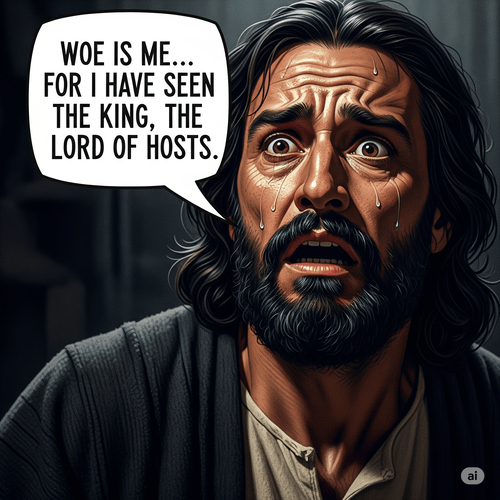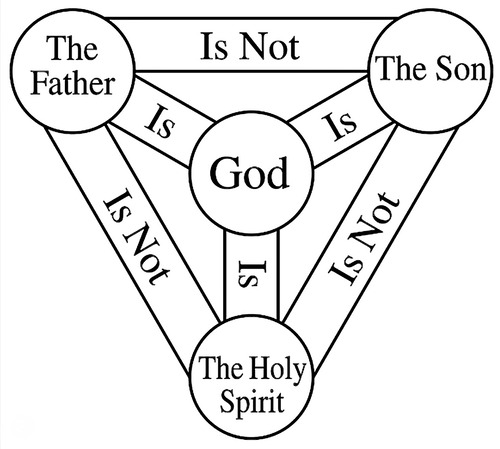The Mystery of the Trinity: A Cornerstone of Christian Belief
The Mystery of the Trinity
The concept of the Trinity is one of the most profound and awe-inspiring teachings in Christianity. It reveals the incredible mystery and complexity of God’s nature. The Trinity is the belief that God exists as three distinct, coequal, co-eternal Persons—the Father, the Son (Jesus Christ), and the Holy Spirit—while still being one divine Essence or Being. Though mind-bending, this doctrine lies at the heart of the Christian faith.
Embracing the Paradox
At first glance, the idea of a Triune God can seem contradictory or impossible to grasp fully. How can God be three and yet one at the same time? The Trinity stretches our finite human minds to their limits as we try to comprehend the infinite nature of our Creator.
Yet, within this great paradox lies an incredible truth about who God is—a truth that fills us with wonder and draws us into deeper intimacy with Him. While the Trinity transcends our understanding, it reveals the beautiful complexity of God’s Being and His desire for a loving relationship with us.
The Trinity stands as a central doctrine in Christianity, embodying the complex nature of God as one entity existing simultaneously as three distinct persons: the Father, the Son (Jesus Christ), and the Holy Spirit. This concept, while central, often evokes wonder and inquiry among believers and scholars alike.
Exploring the Mystery of the Trinity
- Three Persons, One Essence: The doctrine of the Trinity posits that God comprises three coequal and coeternal persons. Despite their distinctness, they share the same divine essence, an eternal unity without beginning or end.
Is the Trinity Doctrine Rooted in Scripture?
- Scriptural Foundations: As theologians point out, the church formulated the doctrine of the Trinity because it felt compelled, on the basis of its study of scripture, to affirm both that God is one and that there are three that are God. While the term “Trinity” is not explicitly mentioned in the Bible, the concept is deeply rooted in scripture. The Bible presents a monotheistic view while simultaneously affirming the divinity of the Holy Spirit (John 15:26; Psalm 139:7-8; Hebrews 9:14) and of the Father and the Son. The Bible offers support for the Trinity though it doesn’t use the exact term. Key passages explore the oneness of God and the divinity of the Father, Son, and Holy Spirit.
Scriptural References to the Trinity
- The Oneness of God: Scripture unequivocally declares the existence of one God (Deuteronomy 6:4).
- The Divinity of the Father: The Father’s divine status (1 Corinthians 8:6) is consistently recognized in biblical texts and has seldom ever been in question.
- The Divinity of the Son: Jesus Christ’s divinity is proclaimed in both Old (Isaiah 9:6) and New Testament (John 20:28 and Philippians 2:5-11) passages, with titles traditionally reserved for God.
- The Divinity of the Holy Spirit: Described with personal pronouns ‘I’ (Acts 10:19,20 and Acts 13:2) and ‘He’ (John 15:26; 16:13,14) the Holy Spirit exhibits divine attributes such as omnipresence (Psalm 139: 7,8), omniscience (1 Corinthians 2:10,11) and omnipotence (Acts 2:2-4). He is also described as eternal (Hebrews 9:14), as the giver of life (John 6:63) and active in creation (Genesis 1:1,2)—all of which are qualities we attribute solely to God.
- The Three-in-Oneness of God: The concept of God existing as multiple persons finds hints in the Old Testament where God refers to Himself plurally (“Us” in Genesis 1:26). The New Testament further develops this concept with passages like the Great Commission (Matthew 28:19) mentioning the Father, Son, and Holy Spirit.
An Invitation to Relationship
While the Trinity stretches our minds, it also expands our understanding of God’s love for us. The very nature of the Triune God—three Persons in an eternal, loving communion—reflects His heart for intimate relationship. Just as the Father, Son, and Holy Spirit share a perfect bond, God desires to draw us into that divine fellowship.
Pondering the Trinity should fill us with awe, humility, and gratitude. It reminds us that our Maker’s wisdom will always surpass our grasp. Yet, it also beckons us to step into the mystery, receiving God’s unfathomable love through the gift of salvation offered in Christ Jesus.
Embracing the Wonder
As we seek to know God more, let us joyfully embrace the beautiful paradox of the Trinity. Let us never cease to be amazed at the depth of God’s Being and His ardent desire to share Himself with us. For in this great mystery, we encounter the glorious truth that our infinite God intimately knows and loves us.
Accepting the Trinity tests our willingness to recognize that God’s wisdom surpasses our understanding. It challenges us to embrace divine truths even when they stretch our finite minds. Denying the Trinity often arises from a desire to simplify God or fit Him into human categories, rather than acknowledging His infinite complexity. The Trinity reminds us God transcends our comprehension, yet invites us to an intimate relationship with Him.
Related Reads:
Editor’s Pick

Monergism vs Synergism: Is Salvation God’s Work Alone?
When God saves us, does He do it alone, or does He need our help? The question isn’t mere theological [...]

Was Jesus Abandoned by the Father on the Cross?
WHY WE ANSWER IN THE NEGATIVE “My God, my God, why have you forsaken me?” These words from the cross [...]

Why Do Some Respond to God’s Call While Others Don’t?
THE REFORMED VIEW ON OUTWARD AND INWARD CALLS EXPLAINED Picture this: Two neighbours attend the same church service. They hear [...]

Does Ocean Salt Content Prove a Young Earth?
A COMPELLING LOOK AT MARINE CHEMISTRY AND EARTH’S TIMELINE The Salt Question That Challenges Deep Time: If Earth’s oceans have [...]
Noah’s Flood: Where Did All the Water Come From? And Go?
The question hits every Bible-believing Christian at some point: “If Noah’s flood covered the whole earth, where did all that [...]

No Marriage in Heaven? What Does Mark 12:25 Mean?
“Will I see my spouse in heaven? Will we still be married?” These questions pierce the heart of every Christian [...]

The Terror of Meeting God: What Isaiah 6 Reveals About Divine Holiness
WHEN ‘WOE IS ME’ IS THE ONLY PROPER RESPONSE TO A GLIMPSE OF GOD Picture this: You’re a prophet of [...]

Is the Holy Spirit Present in Unbelievers? The Biblical Answer
Can someone who doesn’t believe in Jesus Christ have the Holy Spirit living inside them? This question strikes at the [...]

The Gap Theory Exposed: Why Embrace a Young Earth?
The Gap Theory proposes there’s a vast time gap—millions or billions of years—between Genesis 1:1 (“In the beginning God created [...]

Rethinking Sickle Cell Anaemia: A Case for Intelligent Design
Sickle cell anaemia presents what many consider evolution’s strongest card—a genetic condition that causes suffering yet provides protection against malaria. [...]






